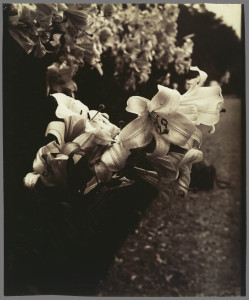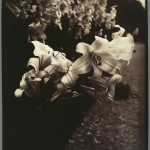 Recently I encountered Kate Munger at a conference. Kate founded the Threshold Choir, which sings at bedsides for the dying. I told Kate about about a life-changing experience with the choir.
Recently I encountered Kate Munger at a conference. Kate founded the Threshold Choir, which sings at bedsides for the dying. I told Kate about about a life-changing experience with the choir.
It began in tragedy, when a young man drove into a tree, and 3 passengers were killed, including his brother.
This tragedy rocked our small community. So much death. So much loss of life, of youth. And the fate of the driver, who agonized in jail, completely bereft, perplexed us all. Three lives had been lost. Was a fourth life, that of the driver, to be lost as well?
The driver’s mother sang in the local Threshold Choir. His father sang in a performing choir. The parents of one of the deceased sang in the same performing choir. The four parents had volunteered at a local school; they’d sung together; they’d been friends. How were they to encounter each other now?
Song was part of the answer.
Several weeks after the crash, mutual friends invited the couples to come to their home for their first face to face meeting after the tragedy. The driver’s mother asked the Threshold Choir to come and surround them with song. The choir’s music is spiritual but not explicitly religious and sung without accompaniment. The music is lullaby-like, archetypal in its evocation of love.
I was one of the four or five singers who gathered at the bottom of the driveway that Sunday afternoon. We rehearsed a few songs quietly. At the appointed time, we started up the driveway, singing Ubi Caritas, our voices blending in a soothing chant. We opened the back door, still singing, and filed slowly through the kitchen, into the living room. One couple sat on a couch under the window. The other couple sat on chairs opposite. The hosts were in between.
We never stopped singing, moving seamlessly from one harmony to the next, creating a surround of song. The music filled the space, weaving a connection. The parents sat with eyes closed. Tears ran down their faces. Their hands reached out for each other.
We sang for about ten minutes, then walked out and continued singing all the way down the driveway. We didn’t talk much once we reached our cars. I was overwhelmed by the courage of the parents and their decision to work towards forgiveness and healing.
This took place several years ago. Last December, at the performing choir’s annual concert, I saw all four parents embrace. The young driver was miraculously given a merciful sentence, in large part due to the request of all the parents of the deceased. He now works with high school students, sharing his story as part of recovery programs and prevention efforts. Life has come from death. I know of nothing more inspirational.

Lilies, Eugene Atget, 1916-19, courtesy of the Getty Museum